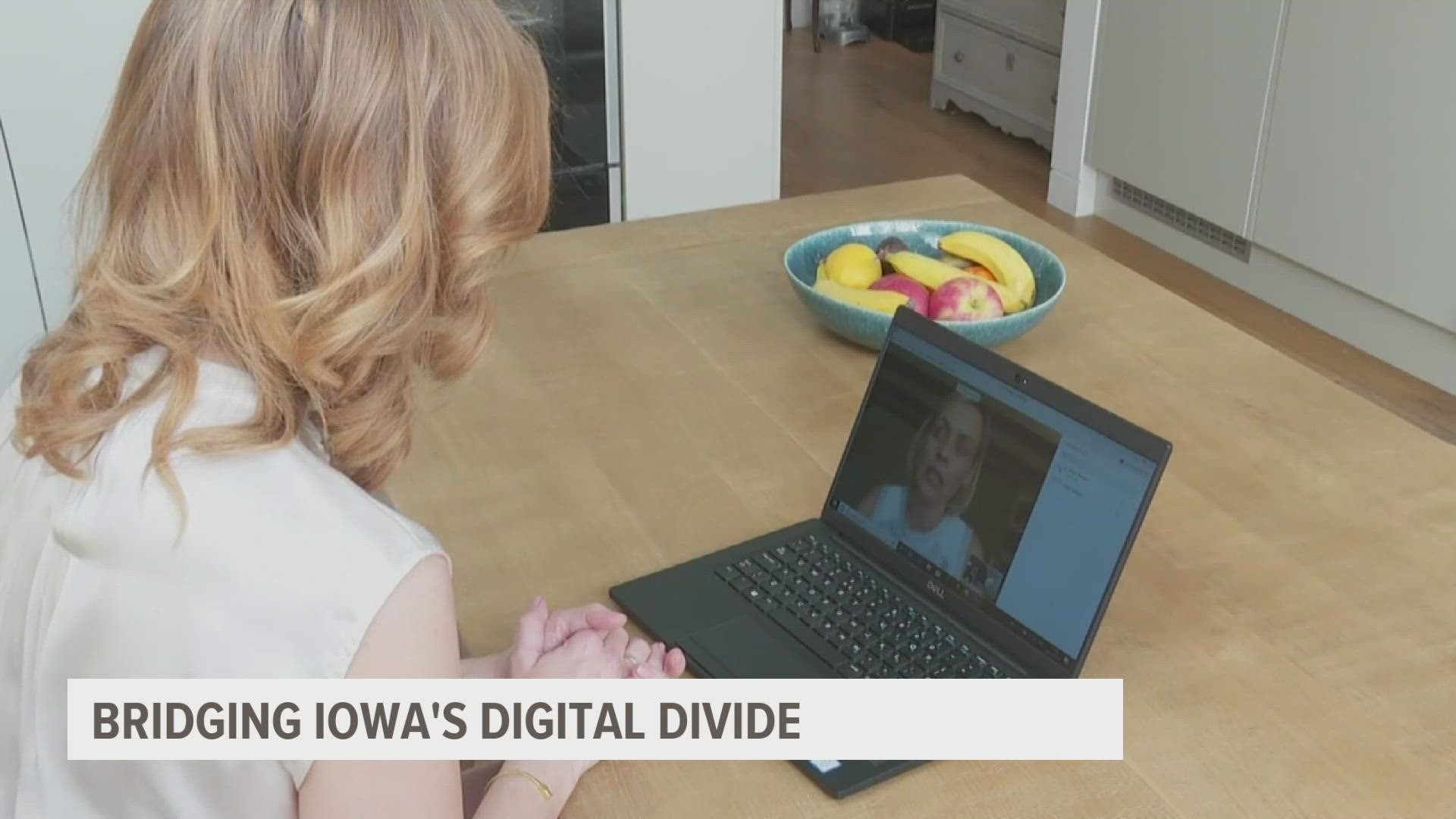WINTERSET, Iowa — By now, you might've heard about Google Fiber coming to Des Moines in the near future. That's great news for central Iowans who don't have reliable broadband, and there are more people dealing with a lack of reliable internet access than you might expect. That has more consequences than just missing a few Facebook updates.
"We need better access for connectivity, and it's important that we have it now because it supports creativity, innovation, and as a state, we need that," said Nancy Mwirotsi, Founder and Executive Director of Pi515, a Des Moines-based nonprofit that teaches students coding and other web skills.
"If people are not connected to knowledge and information to get them ahead, then they will always be behind. So when it comes to digital divide, it's very critical," she added.
In 2021, the Greater Des Moines Partnership commissioned a study examining internet accessibility in 11 counties in Central Iowa. They found that 40% of homes in Central Iowa had download speeds of less than 25 megabits per second, below the FCC definition of high-speed broadband. The problem is even bigger in rural communities, where connection speeds were up to three times slower than in urban areas.
"We have some areas in our county that have fiber to the home. We have other parts of the county, like here in Winterset, where we have some places with cable connection, Mediacom, and we have others that really don't qualify as connected in any meaningful way," said Tom Lemers, Executive Director of the Madison County Development Group.
Leners told Local 5 that getting fiber internet to residential areas in Winterset has been a real challenge. They've been trying to secure federal grant funding to help expand access around the county, but there's a problem.
"Any community that has a mayor and city council and everything, they're ineligible for those grants—those grants are considered rural. Well, that's kind of baloney," he said.
Digital jobs are becoming increasingly common, especially with remote work. As more professions become more and more internet-dependent, a lack of access now could become much more difficult to overcome down the line.
"Everything is moving towards AI automation, right? Everybody will need to have some form of accessibility. And we're really, really behind that," Mwirotsi said.
For more rural communities like Madison County, there is some light at the end of the tunnel. They've been reaching out to congressional offices to change the grant requirements, but it could still take two to five years to get the updated broadband infrastructure in place.
According to the Greater Des Moines Partnership, bridging this digital divide is big business. If 19% of households received improved broadband access, it could create up to $1.25 billion in value for the Greater Des Moines region.

